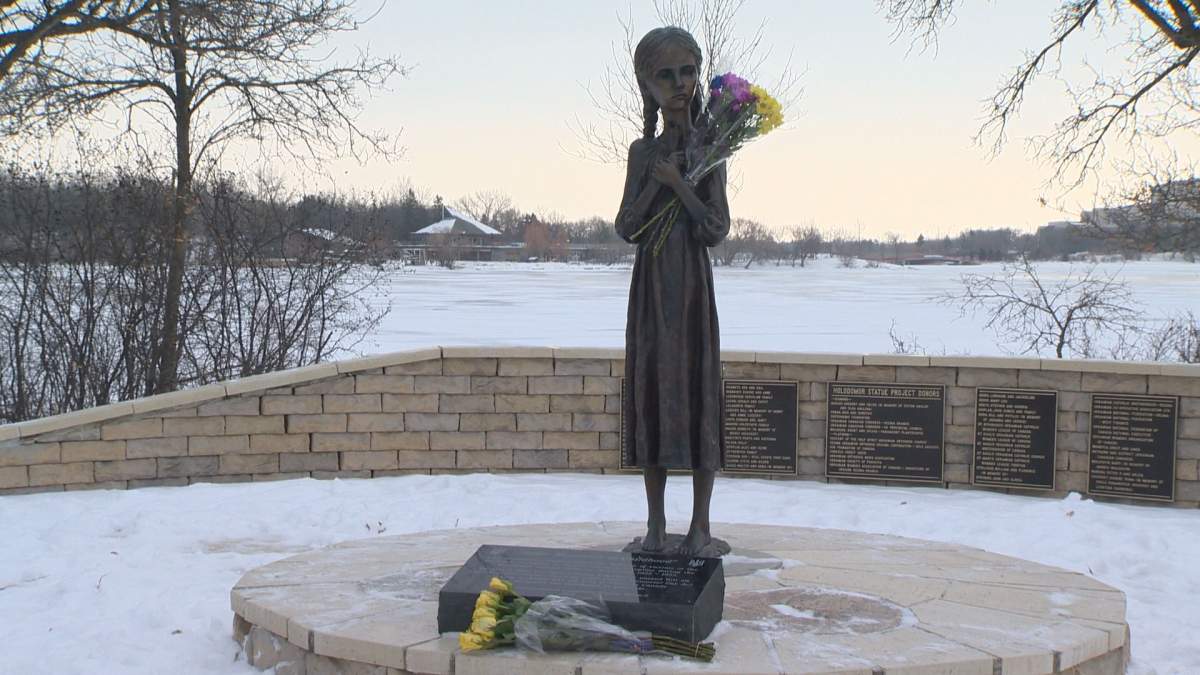Mournful hymns echoed through the Legislative Building as members of Saskatchewan’s Ukrainian community gathered for a service in remembrance of the Holodomor.

This imposed famine was orchestrated by the Joseph Stalin regime in 1932 and 1933. Ten million Ukranians lost their lives.
“All the grain was taken and a lot of it was exported at below world prices at the time. So here he was exporting the grain out of Ukraine and the Ukrainians were starving,” Mary Ann Trischuk, Ukranian Canadian Congress Saskatchewan president said.
A remembrance candle will burn in the Legislative building’s Rotunda for the next week in memory of the lives lost.
It took 50 years for stories of the genocide to become widely known. Many immigrants who came to Canada because of the Holodomor did not share their stories. A census was collected after the famine, Stalin purged the data collected and had the census takers executed.
READ MORE: Travelling exhibition sheds light on Holodomor genocide
After learning of the tragedy, deputy minister to the premier Ken Krawetz became instrumental in having Saskatchewan officially recognize the Holodomor.

Get daily National news
“This event happened and it was up to us to tell this story to the world,” Krawetz said.
“With over 20,000 people dying per day that’s like the city of Yorkton, the city of Yorkton perishing each and every day, and that was at the height of the famine.”
During a trip to Kyiv, Krawetz visited the Holodomor museum and had the opportunity to go through books of those who died during the famine.
“The name Krawetz appears in four of those books. The part that really hit home for me is most of the names that I was looking at, their ages were three or seven or nine,” Krawetz said.
“With my grandparents and my wife’s grandparents having come from Ukraine no doubt those are long lost family members.”
After the service, flowers were place at the commemorative statue “Bitter Memories of Childhood”. Located just east of the Legislative Building, the statue is a young starving girl clutching a wheat sheaf. A lasting reminder of what taken from the Ukrainian people.
“The people, what they could see was that their grain was being loaded up every day,” Trischuk said.
“Even the children, if they were going to get a few kernels of grain they were beaten or executed.”
With this lasting reminder, Saskatchewan-Ukraine Relations Minister Greg Ottenbreit said it is important to continue to the service so the next generation remembers the horror of the Holodomor.
“This type of thing continues on and as a society and world we have to recognize that and do our best to address is and make sure it doesn’t happen,” Ottenbreit said.









Comments